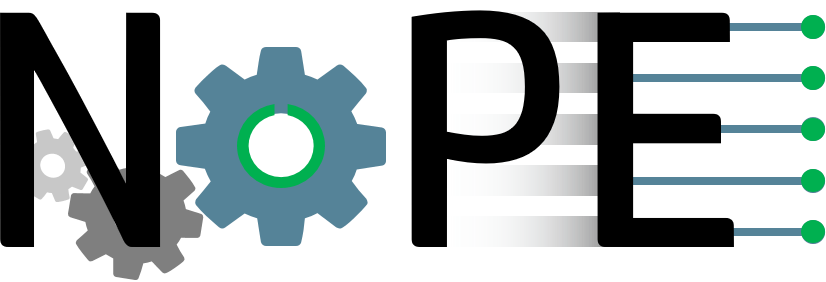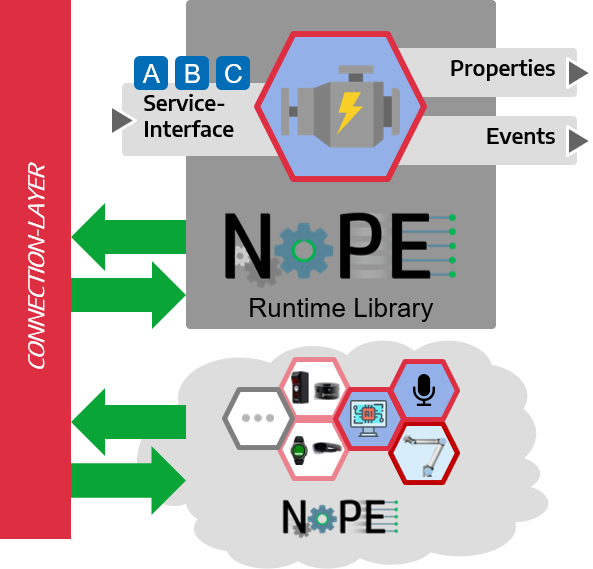1. What is NoPE ?

What does NoPE stand for?
No Programming Environment
Purpose of NoPE
NoPE" is essentially intended to simplify the implementation of distributed software systems. In the context of the researchgroup Montagesysteme this includes all individual partial software components (e.g. wrapper for a robot, gripper or laser line sensor or software components), which are necessary to interact with an assembly system.
NoPE pursues the following goals and tasks, among others:
- Creation of a uniform communication structure so that individual software components can communicate with each other.
- Basis for subsystems that need to be connected.
- By
NoPEsoftware components should become more reusable and must not be provided each time again. - The user should not be influenced by the concepts of
NoPE, much moreNoPEshould be understood as work facilitation.
Technical task of NoPE
With the NoPE, employees develop software that is compatible with a common basis. For this purpose different patterns must be implemented. NoPE should support this process using a common communication basis. This communcation technology is compatible with other technologies (like rest, opcua, ros etc.)-
For this a basic basis software / library is developed, with which standardizes and simplifies the communication between different modules. The structure of the software is to be standardized in a certain form (e.g. via standard classes and methods), so that a handover can be simplified and the developers only have to worry about the implementation of the logic. Thus, the developers do not need to independently integrate e.g. REST or mqtt to interact with the modules of other developers. Furthermore, NoPE should enable a distribution of the software (e.g. on servers, IPCs etc.). Thus, e.g. ML solutions in Python can be implemented on a server and used in a javascript.
This is described in the following picture:

Requirements for NoPE
The following functional requirements are to be met by NoPE:
- A simple structure shall be used so that everyone can use
NoPE. - All relevant patterns (
pub-sub,request and response) should be able to be implemented viaNoPE. - The user should not worry about the communication, but concentrate on the implementation of his software component.
- The user should be able to use programming languages independently of the modules.
- NoPE should be so flexible that in the future further architectures can be built on it (e.g. Blackboard etc).
Quality objectives of NoPE
The top 3 architectural quality requirements that key stakeholders are particularly concerned with meeting or maintaining are are particularly important:
Functional Suitablity.
Motivation: The system should meet the requirements so that the system can be used and this is desired by the users.
Operability.
Motivation: The application should merge different research topics by allowing individual software components (created by different users) to be used. This should lead to a change of culture in the long run. The software components are to become concomitantly better tested, more universal and versatile applicable.
Transferablitiy.
Motivation: The system should be applicable in different use cases. Thus a long-term compatibility of the software written by the users is to be ensured.